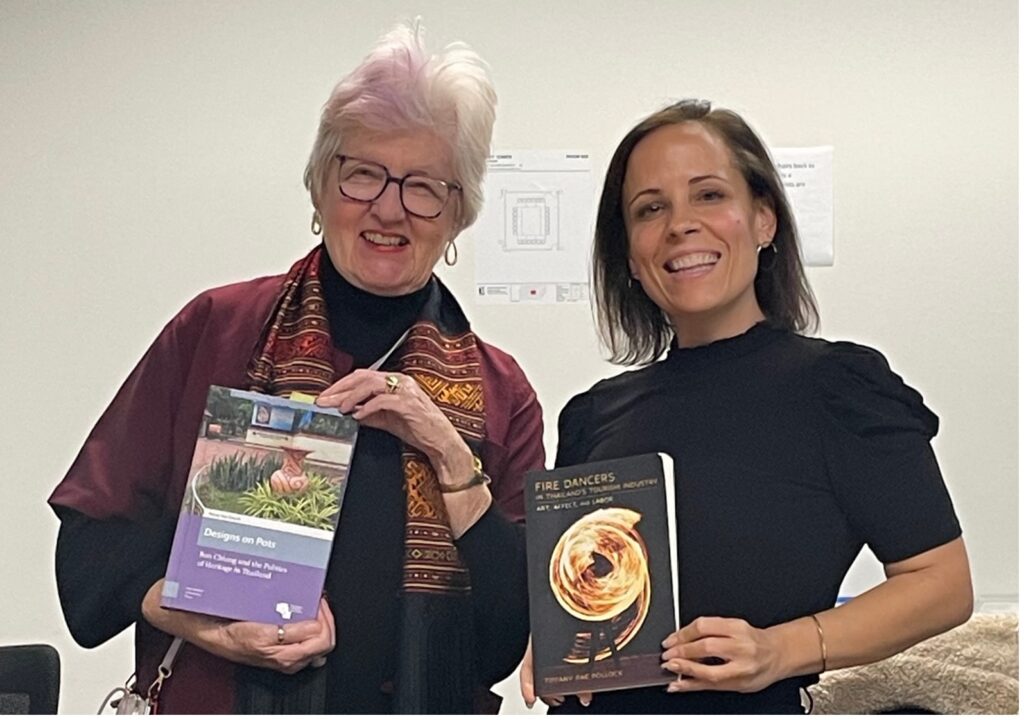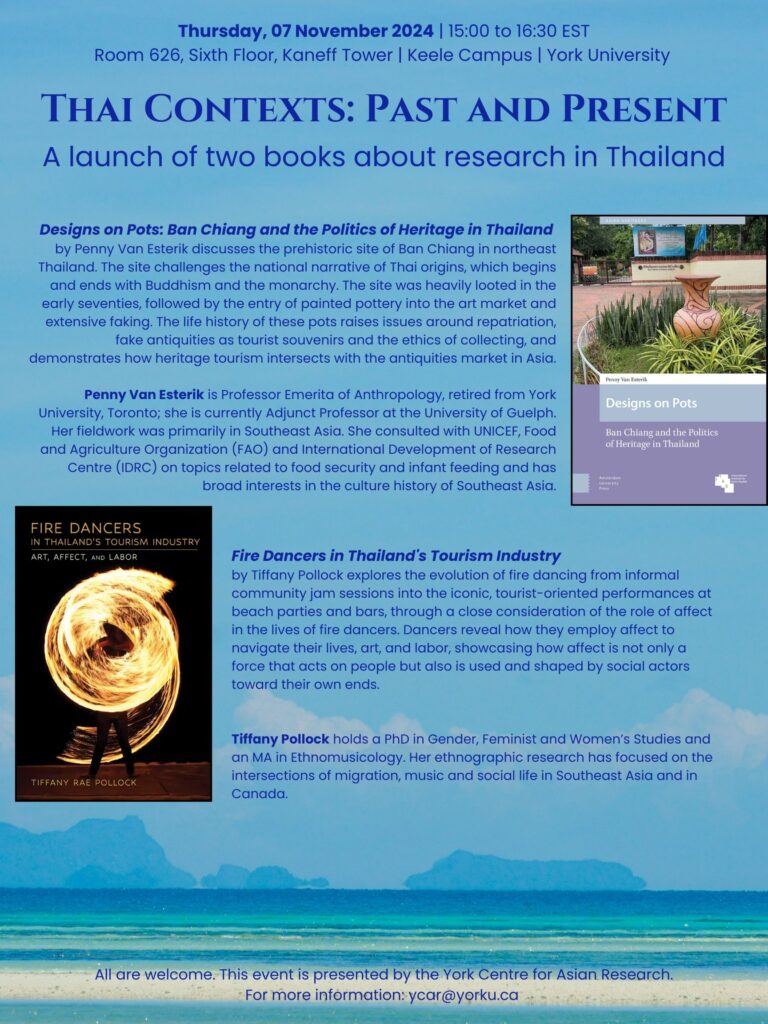
Ancient pots and fire dancers may seem like an odd pairing but an upcoming book launch offers the Thai perspective on both fascinating topics.
Penny Van Esterik and Tiffany Pollock’s new books will be launched at York on Nov. 7. More information about the event can be found at this link.
“While we each research very different contexts in Thailand, it has been particularly rewarding to bounce ideas back and forth. Tiffany has been in the country more recently and I have a long and in-depth engagement with Thailand; nevertheless, we have similar approaches to analysis and interpretation of Thai society,” said Van Esterik, Professor Emeritus of Anthropology.
Van Esterik and her late husband John, who also taught at York, were part of the first group of CUSO volunteers in Thailand in 1967. They later returned to conduct PhD fieldwork as well as to conduct additional research. After coming to York, they were awarded a CIDA grant to develop linkages between York and several Thai Universities to set up women’s studies programs and Thai Studies at York.
Her book, Designs on Pots: Ban Chiang and the Politics of Heritage in Thailand, looks at the life history of ancient burial pottery looted from a site in northeastern Thailand that made its way into the art markets and museums of the world. Shortly after the news broke about the age of the site, artists began copying the designs and selling fake pots.
Van Esterik returned to the subject of Ban Chiang pottery after retiring in 2014. “My research had been too long in an academic parking lot. “I wrote the book in order to leave behind stories and images about these prehistoric pots for other researchers to use, but I wanted to write it in a way that would not encourage more looting and forgery.”
Pollock’s book, Fire Dancers in Thailand's Tourism Industry: Art, Affect, and Labor, Is her first and based on her dissertation research. The ethnography explores the evolution of fire dancing in Thailand from informal jam sessions to iconic tourist-oriented performances through the role of affect in the lives of dancers.
She had to learn quickly how to navigate this world. “Typically, I like to reserve a quiet time and space to do interviews with consultants to gather more in-depth information on their lives. But fire dancers preferred to share their thoughts with me in a completely different format – that is, when we were riding around the islands on motorcycles. I learned quickly how to balance on the bike with my legs while using my phone to capture as many details as possible.”
Fire dancers reveal how they employ affect to navigate their lives, labour and artistry in the context of tourism, said Pollock. Their perspectives highlight how affect is not only a force that acts on people but is also used and shaped by social actors toward their own ends.
A YCAR alumna and currently the Associate Director, Program Quality and Development in the Provost’s Office, Pollock was a music teacher at an international school in Thailand when she first learned about fire dancing. She lived in Bangkok for three years and became interested in intersections of performance, gender and tourism and decided to pursue a PhD in Canada.
The York Centre for Asian Research at York has several associates interested in research in Southeast Asia, an increasingly important region of the world for Canada. Thailand, as a crypto colony, presents a particularly interesting case for understanding decolonization, heritage and tourism, said Van Esterik. Given the significance of Buddhism in daily life, Thai perspectives on identities, social relations and power challenge deeply held assumptions in academia.
“Ethnographic research requires situating concepts such as race, class, gender and sexuality contextually within Buddhist logics of impermanence, for instance as well as exploring these dynamics through affect – that is, how they are felt,” she said.

